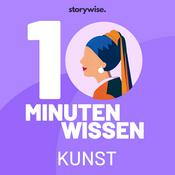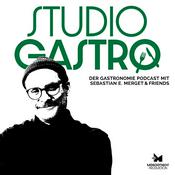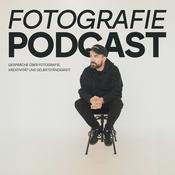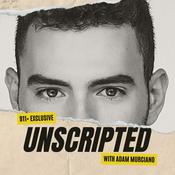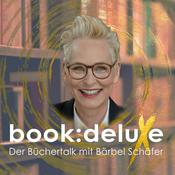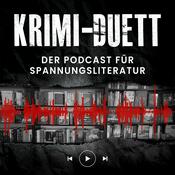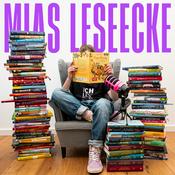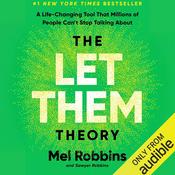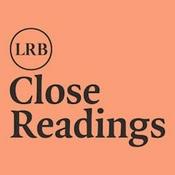293 Episoden
- Whitney White is a theatrical powerhouse. A director, writer, actor, and musician, White’s work has been seen on Broadway, Off Broadway, and at major institutions including The Public Theater, the Brooklyn Academy of Music, and, most recently, the Royal Shakespeare Company. Her projects include Jaja’s African Hair Braiding, The Last Five Years, Macbeth in Stride, and By The Queen, which was featured in the Folger’s 2025 Reading Room Festival.
In this episode, White discusses All Is But Fantasy, her four-play musical cycle created for the RSC, where it’s now receiving its world premiere. The high-energy, gig-theater show investigates Shakespeare’s women and ambition, focusing on Lady Macbeth, Emilia, Juliet, and Richard III. Each piece combines performance with original music, using sound and rhythm as a way into the text and as a tool for rethinking these characters whose inner lives are often cut short or overlooked.
White reflects on why Shakespeare’s women so often meet tragic ends, how those stories continue to feel familiar, and what it means to keep staging them now. She considers the ways that music, performance, and adaptation can help us better understand Shakespeare today.
From the Shakespeare Unlimited podcast. Published February 10, 2026. © Folger Shakespeare Library. All rights reserved. This episode was produced by Matt Frassica, with Garland Scott serving as executive producer. It was edited by Gail Kern Paster. Technical support was provided by Melvin Rickarby in Stratford, England, and Voice Trax West in Studio City, California. Web production was handled by Paola García Acuña. Transcripts are edited by Leonor Fernandez. Final mixing services were provided by Clean Cuts at Three Seas, Inc.
Whitney White is an Obie and Lily Award-winning and Tony Award-nominated director, actor, and musician, celebrated for her bold, innovative storytelling across both Broadway and off-Broadway. She recently received the Drama League’s 2025 Founders Award for Excellence in Directing and an Obie Award for Sustained Achievement in Directing.
All Is But Fantasy, White’s four-part musical exploration of Shakespeare’s women and ambition, commissioned by the Royal Shakespeare Company, marks her RSC debut as a writer, director, and actor. The two-part high-energy gig theater show is receiving its world premiere at The Other Place in Stratford-upon-Avon in January and February 2026.
White’s other directing credits on Broadway include The Last Five Years and Jaja’s African Hair Braiding, off-Broadway credits include Liberation, Walden, Jordan’s, Soft, On Sugarland, What to Send Up When It Goes Down, Our Dear Drug Lord, and For All the Women Who Thought They Were Mad. She recently opened Saturday Church, a new musical featuring songs by Sia and Honey Dijon at New York Theatre Workshop. She also created Macbeth In Stride at Brooklyn Academy of Music, writing the book, music and lyrics. Additional directing work includes The Secret Life of Bees, By The Queen, The Spectacularly Lamentable Trial of Miz Martha Washington, A Human Being of a Sort, An Iliad, The Amen Corner, Othello, Canyon, and Jump.
On screen, White has appeared in Ocean’s Eight, Single Drunk Female, Louie, and The Playboy Club, and she contributed as a writer to Boots Riley’s acclaimed series I’m A Virgo for Prime Video. - Many Shakespeare fans don’t think of themselves as “math people.” They’re theater kids, poetry lovers, bookworms, right? But in Shakespeare’s world, math and literature were deeply intertwined. In Much Ado About Numbers: Shakespeare’s Mathematical Life and Times, mathematician Rob Eastaway explores how mathematical thinking shaped Shakespeare’s language and imagination.
Shakespeare lived at a moment of major intellectual change, when England was newly encountering Indo-Arabic numerals, experimenting with new systems of calculation, and redefining ideas of measure and proportion. Eastaway shows how Shakespeare delighted in numbers and patterns, playing with “scores,” fractions, and symmetry in works like Othello, Henry V, Romeo and Juliet, and The Winter’s Tale. Even familiar references to “nothing,” time, and music take on new meaning when viewed through a mathematical lens.
In this episode, Eastaway reveals how math was woven into everyday life in Shakespeare’s time and how reading with our “math glasses” on can offer fresh insights into Shakespeare’s language. - While Shakespeare was reshaping English drama, a parallel theatrical revolution was unfolding in Spain. During the Spanish Golden Age, playwright Lope de Vega pioneered the comedia nueva, a bold new dramatic form that broke classical rules in favor of fast-paced plots, emotional intensity, and popular appeal.
In this episode, scholar and translator Barbara Fuchs shares how the theatrical innovations of Lope de Vega, Pedro Calderón de la Barca, Tirso de Molina, Ana Caro Mallén de Soto, and others, including a three-act structure, blended genres, and complex female roles, helped redefine early modern theater and influenced the kinds of stories told on the English stage. Fuchs traces the rich cultural exchange between Spain and England and the work that she is doing now with Diversifying the Classics to bring plays in Spanish from both sides of the Atlantic to new audiences.
Fuchs also discusses her adaptation for young audiences of de Vega’s Fuente Ovejuna, a powerful story of collective resistance, whichwill be featured at the Folger’s Reading Room Festival on Saturday, January 24.
From the Shakespeare Unlimited podcast. Published January 12, 2025. © Folger Shakespeare Library. All rights reserved. This episode was produced by Matt Frassica. Garland Scott is the executive producer. It was edited by Gail Kern Paster. We had help with web production from Paola García Acuña. Leonor Fernandez edits our transcripts. We had technical help from Hamish Brown in Stirling, Scotland, and Voice Trax West in Studio City, California. Final mixing services provided by Clean Cuts at Three Seas, Inc.
Barbara Fuchs, trained as a comparatist (English, Spanish, French, Italian), Professor Fuchs works on European cultural production from the late fifteenth through the seventeenth centuries, with a special emphasis on literature and empire, and on theater and performance in transnational contexts. As part of her commitment to the public humanities and collaborative work, she directs the UCLA “Diversifying the Classics” initiative and edits the series “The Comedia in Translation and Performance” for Juan de la Cuesta. She is also director of LA Escena, Los Angeles’ biennial festival of Hispanic classical theater, founded in 2018. Currently, Professor Fuchs serves as one of the articles editors for Renaissance Quarterly.
Professor Fuchs’ recent books include Knowing Fictions: Picaresque Reading in the Early Modern Hispanic World (Penn 2021); The Courage to Right a Woman’s Wrongs (Juan de la Cuesta 2021), a collaborative translation of Ana Caro’s Valor, agravio y mujer; and The Quest for Certainty in Early Modern Europe (Toronto 2020), co-edited with Mercedes García-Arenal. She is also one of the editors for the Norton Anthology of World Literature (2012, 2018). Her Theater of Lockdown: Digital and Distanced Performance in a time of Pandemic, one of the first studies of how theater was transformed by COVID-19, was published by Methuen in September 2021. She is currently working on a translation and critical edition of Ginés Pérez de Hita’s Las guerras civiles de Granada with Payton Phillips Quintanilla.
In 2021, Professor Fuchs served as President of the Modern Language Association. She was recently awarded the inaugural “Premio Ñ” from the Instituto Cervantes, for the promotion of Spanish language and culture. - Why does Samuel Pepys’s diary still matter 200 years after it was first published? In her new book, The Strange History of Samuel Pepys’s Diary, historian Kate Loveman examines how Pepys’s extraordinary consistency as a diarist has made his writing one of the richest records of everyday life in Restoration England.
Writing almost daily for nearly a decade, Pepys’s diary documents everything from politics and scientific discoveries to theater and fashion. Even in times of crisis, Pepys reveals life’s ordinary concerns, from worrying about the source of hair for wigs during the Great Plague to safeguarding a wheel of expensive Parmesan cheese during the Great Fire of London. He also offers a rare glimpse into contemporary theatergoing, recording audience reactions and his own opinions, including Shakespeare. He famously dismissed A Midsummer Night’s Dream.
In this episode, Loveman explores how Pepys’s diary has been edited, published, censored, and rediscovered over centuries, entertaining readers from the Victorian era to the COVID-19 pandemic in the 21st century. Pepys’s daily observations show how careful, habitual record-keeping can transform ordinary life into an invaluable historical resource.
From the Shakespeare Unlimited podcast. Published December 30, 2025. © Folger Shakespeare Library. All rights reserved. This episode was produced by Matt Frassica. Garland Scott is the executive producer. It was edited by Gail Kern Paster. We had help with web production from Paola García Acuña. Leonor Fernandez edits our transcripts. We had technical help from Hamish Brown in Stirling, Scotland, and Voice Trax West in Studio City, California. Final mixing services provided by Clean Cuts at Three Seas, Inc.
Kate Loveman is Professor of Early Modern Literature and Culture at the University of Leicester and an internationally recognized expert on Pepys and Restoration literature. She is the author of Reading Fictions, 1660–1740: Deception in English Literary and Political Culture; Samuel Pepys and his Books: Reading, Newsgathering, and Sociability, 1660–1703; and The Strange History of Samuel Pepys’s Diary; and the editor of The Diary of Samuel Pepys for Everyman. - What did people really eat in Shakespeare’s England? In her new book, Much Ado About Cooking, food historian Sam Bilton uncovers the vibrant and surprising world of early modern cuisine—where sugar was locked away like treasure, fresh salads were everyday fare, and a “banquet” meant a “post-feast after party” dessert course.
Bilton brings to life the flavors behind Shakespeare’s food references: mince pies, herb-packed green sauces, saffron-brightened tarts, and even whimsical dishes crafted to look like something else entirely. These foods reveal a world shaped by global trade, humoral medicine, and a delight in spectacle.
In this episode, Bilton discusses how cooking, dining, and food imagery can open a new window onto Shakespeare’s plays and the people who lived, ate, and celebrated in his time.
From the Shakespeare Unlimited podcast. Published December 16, 2025. © Folger Shakespeare Library. All rights reserved. This episode was produced by Matt Frassica. Garland Scott is the executive producer. It was edited by Gail Kern Paster. We had help with web production from Paola García Acuña. Leonor Fernandez edits our transcripts. We had technical help from Hamish Brown in Stirling, Scotland, and Voice Trax West in Studio City, California. Final mixing services provided by Clean Cuts at Three Seas, Inc.
Sam Bilton is a food historian, author and presenter of the award-winning “Comfortably Hungry” and “A is for Apple” podcasts. She has written books on the history of gingerbread, saffron and chocolate, and writes articles on food history for a variety of print and online publications. Sam has also hosted several Shakespeare-themed supper clubs over the years. You can find out more details about Sam on her website: sambilton.com.
Weitere Kunst Podcasts
Trending Kunst Podcasts
Über Folger Shakespeare Library: Shakespeare Unlimited
Home to the world's largest collection of Shakespeare materials. Advancing knowledge and the arts. Discover it all at www.folger.edu. Shakespeare turns up in the most interesting places—not just literature and the stage, but science and social history as well. Our "Shakespeare Unlimited" podcast explores the fascinating and varied connections between Shakespeare, his works, and the world around us.
Podcast-WebsiteHöre Folger Shakespeare Library: Shakespeare Unlimited, WDR 5 Alles in Butter und viele andere Podcasts aus aller Welt mit der radio.de-App

Hol dir die kostenlose radio.de App
- Sender und Podcasts favorisieren
- Streamen via Wifi oder Bluetooth
- Unterstützt Carplay & Android Auto
- viele weitere App Funktionen
Hol dir die kostenlose radio.de App
- Sender und Podcasts favorisieren
- Streamen via Wifi oder Bluetooth
- Unterstützt Carplay & Android Auto
- viele weitere App Funktionen


Folger Shakespeare Library: Shakespeare Unlimited
Code scannen,
App laden,
loshören.
App laden,
loshören.





